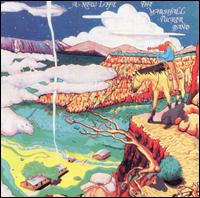The Marshall Tucker Band is an American Southern rock band originally from Spartanburg, South Carolina.
http://www.youtube.com/watch?v=P-n60M6Sd2I
The "Marshall Tucker" in the band's name does not refer to a band member, but rather a Spartanburg-area piano tuner.
While the band was discussing possible band names one evening in an old warehouse they had rented for rehearsal space, someone noticed that the warehouse's door key had the name "Marshall Tucker" inscribed on it, and suggested they called themselves the "The Marshall Tucker Band," not realizing it referred to an actual person. It later came to light that Marshall Tucker, the blind piano tuner, had rented the space before the band, and the landlord had yet to change the inscription on the key.
The original members (and some later members) of the Marshall Tucker Band had been playing in various lineups under different band names around the Spartanburg area since the early 1960s.
In 1966, members of several such bands merged to form the Toy Factory, named after guitarist Toy Caldwell.
In 1970 the Toy Factory was the opening act for the Allman Brothers when the Allman's played at the "Sitar" music lounge in Spartanburg.
The final lineup that formed The Marshall Tucker band included.Toy Caldwell on guitar, Tommy Caldwell on bass, George McCorkle rhythm guitar, and Jerry Eubanks, flute/tenor sax, while adding Paul Riddle on drums;
The band's blend of rock, rhythm and blues, jazz, country, and gospel helped establish the Southern rock genre in the early 1970s.
They signed with Capricorn Records and in 1973 released their first LP, The Marshall Tucker Band.
Produced by Paul Hornsby and certified gold in 1975. All of the tracks were written by Toy Caldwell, including "Can't You See".
The band's second album, A New Life, which was released in 1974, and certified gold in 1977.
Charlie Daniels and blues guitarist Elvin Bishop were among several musicians that joined the band for Where We All Belong a double-album (one studio album and one live album) released by the band in 1974 and certified gold that same year.
The following year the band's Searchin' for a Rainbow was also certified gold the year of its release, and contained the track "Fire on the Mountain" which peaked at #38 on the Billboard charts.
Long Hard Ride, the band's fifth consecutive gold album, was released in 1976, and its instrumental title track was nominated for a Grammy. Guest performers included Charlie Daniels, John McEuen and Jerome Joseph. The title track was made into a short form film that was played as a sort of movie trailer. It depicts the members of the band as a gang of cowboys.
The album's cover features Frank C. McCarthy's painting "The Last Crossing".
Carolina Dreams, released in 1977 and certified platinum that same year, proved to be the band's most commercially-successful album, and included the track "Heard It In a Love Song," which reached #14 on the Billboard charts.
The band's final Capricorn release came with 1978's Together Forever. The name of the album reflects the Platonic love of the members towards one another.
The band moved to Warner Bros. Records for their ninth album, Running Like the Wind, On April 22, 1980, the band's bassist, Tommy Caldwell, was involved in an automobile accident in which he suffered massive head trauma, and died six days later.
Former Toy Factory bassist Franklin Wilkie replaced Caldwell, but the band was never able to recapture its commercial success of the 1970s.




No comments:
Post a Comment